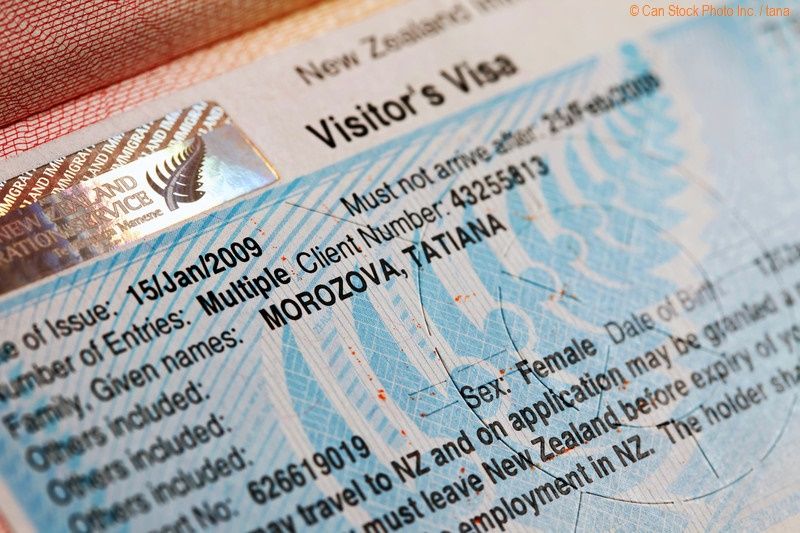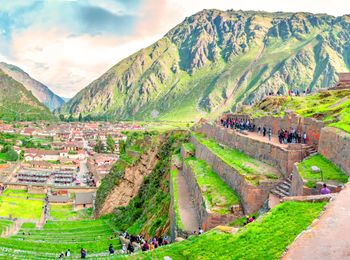Crossing through border control can be stressful at the best of times. Even more so after a long flight and with a backpack in tow. I hate speaking to immigration officers, mainly when they intend to give you the third degree (border control officials in the US, UK, Australia, and Canada should get special medals for this, by the way). However, some preparation can help reduce your stress and speed up your border control experience. We’ve prepared seven of our best tips for the border crossing.
Know your visa or the conditions of the visa-free program on top of what your visa allows you to do and what it doesn’t. Most easy-to-get visas (tourist visas, visa on arrival, visa waiver) do not allow you to work. If you mention anything about work at the border, it’s a red flag, and you could get deported. Keep tabs on what your visa or visa-free program says about:
- working / not working
- purpose
- length of stay, whether it can be extended
- number of entries (single, double, multiple)
- other visa conditions
Have your documents ready at border control
-
I’m not talking about your passport. Ensure your essential documents are ready to hand, preferably well organized in a slimline file or similar. You should have any document that logically supports your travel intentions and, most importantly, your intention to leave the country within the relevant time period. Here’s what you should have:
-
A copy of any electronic visa or ESTA. Print this document out and make sure the unique reference number is legible. (I’m assuming that this is firmly stamped into your passport if you need an old-fashioned visa. Some visa on arrival systems, like those of Canada and India, require you to print out and present a copy of the electronic visa confirmation.)
-
If required, your immigration landing card. Usually, they give these out on the plane. Fill it out neatly and meticulously—lots of detail. Make sure the hotel’s address and your contact details are filled in. If it looks vague, then they might ask about it.
-
Your flight tickets. These should indicate return travel or onward travel before the visa or visa waiver period. These should be “confirmed” tickets and not merely a planned itinerary.
-
Hotel or hostel bookings. Ideally, it would help if you had these for the whole period of your stay. For longer trips, however, this isn’t realistic. I would book a few nights at a hostel at the start of your journey. An immigration officer will be suspicious if you don’t have anything lined up. You can book and cancel a reservation with hotels (and some hostels) without charge. I booked a month at a hostel once, just as insurance during a busy period, and then canceled. There’s no excuse for not having some accommodation document with you. If you’re staying with friends, get them to type up a letter and sign it.
-
Any other confirmed bookings. Car hire and bus tickets are reasonable. Even bookings for scuba diving lessons, paragliding, wine tasting, or whatever activities are acceptable. It’s all good supporting material for an intention to be a tourist.
-
A rough trip plan. If you don’t have confirmed bookings or that many, it’s good to have a typed trip plan or itinerary. It should roughly cover dates and places you’ll visit when in the country. It’s not great, but it is better than nothing.
-
Proof of funds. Try to have some documented evidence of having money. This can be a formal bank statement (old school), a printout from internet banking, or a credit card statement (showing an available credit limit). The amount you need to show will vary depending on where you visit and how long. You need to be able to demonstrate, in common sense terms, that you can support yourself without working.
-
Adequate medical insurance. You should be able to show a medical insurance certificate or a similar printout from your online coverage. It should be valid up to a specific limit and valid for the place you are visiting. Requirements vary. The EU, i.e. Schengen area, requires about 30,000 euros worth of coverage.
-
Letter from your employer or university. If you have a job, it helps if you have a letter from your employer stating that (i) you are employed and (ii) you have been given leave of so long, etc., to travel. Universities can issue similar letters if you are studying (or you could print out a copy of your enrollment statement). This proves your ties to your home country and is reasonably popular with immigration officers.
-
Finally, having a list of phone numbers of various people and places (hostels, hotels, etc.) that can confirm your plans (or bookings) can be helpful. Not usually necessary, but it can make the difference if you get pulled into a side interview where they look at your story more closely.
The point of this documentation is to verify your story, and it is also used to find inconsistencies, at least from the immigration officer’s point of view. If it all lines up, good documentation is your best insurance against any troublesome experience at immigration control.
First impressions count
As well as what you actually say to the immigration officer, how you appear at border control is important. Upon arrival, it’s a good idea to conservatively smile, make eye contact, and say hello. Do this even if the guy is a brick wall and even if you feel like a schmuck. First impressions count, and the officer is trained to assess your credibility by looking for any red flags in your behavior. Remember, border control sees young folks with packs on their back as higher risk. For that reason, you already have it tougher than other travelers. So be polite but bland.
Get your story straight.
 Your story should be simple and short: “I am here as a tourist – staying in LA and then heading up to San Francisco. Leaving in six weeks. Staying at the Orange Drive Hostel this week.” Know how long you are going to stay, where you are going to stay, what you are going to see and do, and when you are leaving. Answer follow-up questions directly without going down any “rabbit holes.” Don’t provide additional detail for border control unless you are asked to. As a rule of thumb, your answers shouldn’t be much longer than the question. That said, try not to be vague. This sort of thing isn’t a good idea: “Maybe I’ll catch a plane on 12 April, or maybe I’ll change it”. If you are going to change your plans, best do that after you clear immigration control and don’t speculate about it with the immigration officer. Do not mention “hanging out” or finding a job (unless you have a working holiday visa).
Your story should be simple and short: “I am here as a tourist – staying in LA and then heading up to San Francisco. Leaving in six weeks. Staying at the Orange Drive Hostel this week.” Know how long you are going to stay, where you are going to stay, what you are going to see and do, and when you are leaving. Answer follow-up questions directly without going down any “rabbit holes.” Don’t provide additional detail for border control unless you are asked to. As a rule of thumb, your answers shouldn’t be much longer than the question. That said, try not to be vague. This sort of thing isn’t a good idea: “Maybe I’ll catch a plane on 12 April, or maybe I’ll change it”. If you are going to change your plans, best do that after you clear immigration control and don’t speculate about it with the immigration officer. Do not mention “hanging out” or finding a job (unless you have a working holiday visa).
Use your documents as a confidence crutch.
Every now and again, you will get an aggressive immigration officer who’ll be out to get you (or just takes his job too seriously, aka Heathrow immigration officers). Basically, your response to his request for more detail – once it gets past a certain point – should be the same. You should say, “I have all the documents here if it is useful” or “Document x might be able to help on that issue.” Don’t say answer this way for a simple question, because they’ll wonder a bit if you can’t reply for basic details. But if he or she gets aggressive and really particular, i.e., “What street is that hostel on?” or “How much did that booking cost?“, then this is the best way to go.
Stay calm under pressure.
If a border control officer accuses you of something, remember that he will often do it only to see your reaction. If your reaction is OK, he probably won’t bother to dig much further. It is key that you remain calm and collected. The officer may try it on with a question like, “I think you intend to work in the United Kingdom, isn’t that so?“ Make eye contact, pause and simply say, “No, that’s not the case.” If they keep pushing, you can use tip #2 again and just stay “If you look at this document, it may help you” (I might use the return ticket as a good document here). Try not to get angry or get into a rant. Basically, it’s just: (a) your statement that the accusation is incorrect and (b) a reference to a document that supports your plan. Remember to slow down when you are speaking and breathe deeply; those guys can’t force you to do anything on the spot (they have to go up the chain), so taking your time and speaking slowly can take back the power. Because you’ve got the documents, it is harder for the officer to run away with a wild theory (UK Home Office guys are trained in amateur cross-examination techniques, so I suspect they just pick a theory out of the textbook and try to pin it on you). Having a good book of documents is key to keeping you calm.
Don’t be smug or contemptuous, no matter what
Remember, the border control official can be rude to you. He doesn’t have that much to lose, and the system is swamped with complaints, so your complaint about being talked to with the wrong tone is going nowhere. You want something from the situation, so it is imperative that you do not rise to any escalation and become angry, rude, aggressive, or abusive yourself. By the same token, do not act smug or contemptuous. Even if the officer is treating you terribly, don’t act up in return. Doing so may make it easier for the officer to justify to his boss a decision to deny you entry. I know this can be hard to do but try thinking about how the border control officer is only human, is (probably) paid next to nothing, and has the stressful job of dealing with hundreds of folks per day. However offended you may feel, don’t risk your trip because of it. If you want to, note down the officer’s badge number and write a complaint later on.



